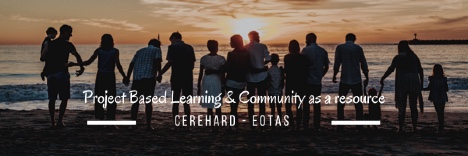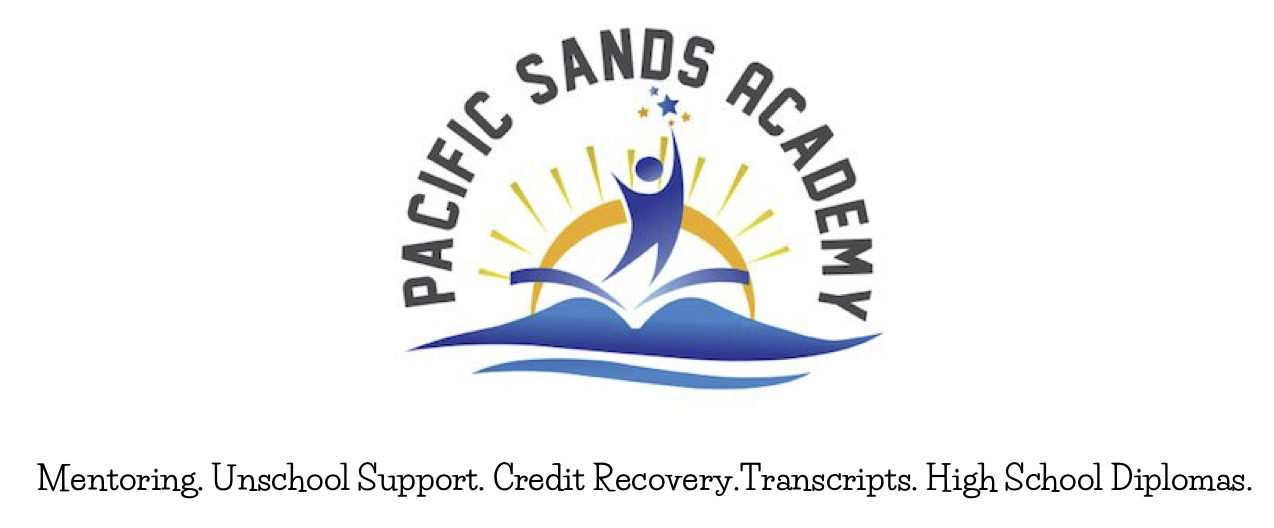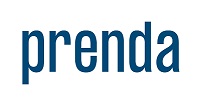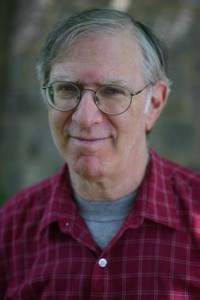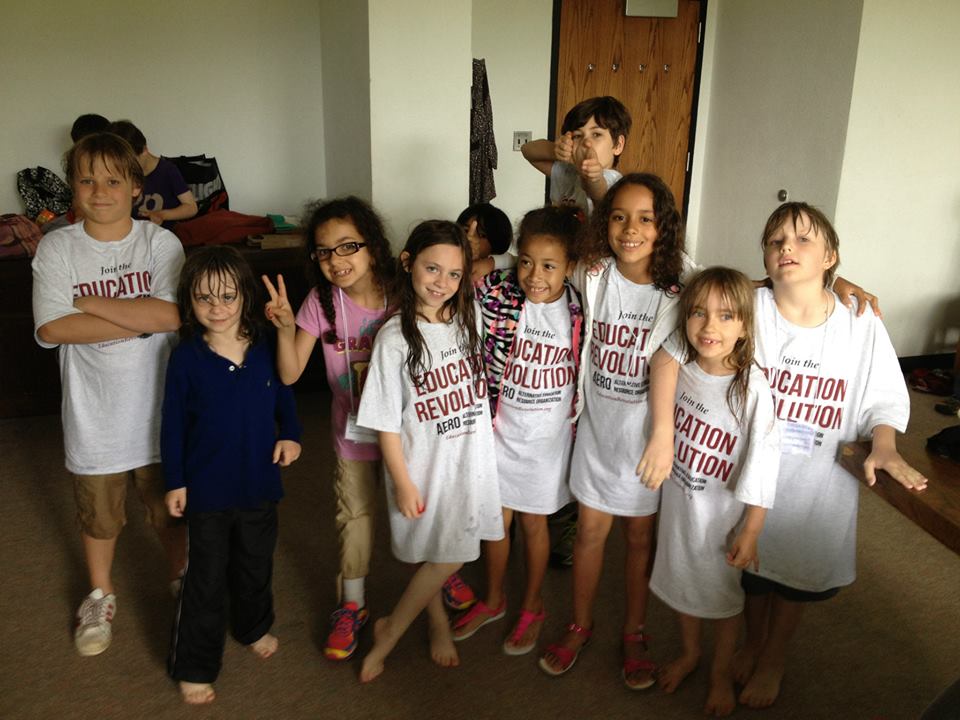Below is a listing of schools and organizations that are members of AERO’s international network of education alternatives. These schools and organizations generally have in common a learner-centered approach to education. Members include K-12 schools, colleges, homeschool resource centers, and other organizations. AERO membership is available for individuals and schools around the world who would like to help realize an education revolution. Individual and school members get access to our conversational listserve and an extensive video library of speeches and interviews of some of the most famous and influential voices of the alternative education movement. Members also enjoy discounts in our bookstore and to our annual conference. Individual and school AERO members can post job listings. Schools can post their website link to AERO’s member list, one of the most heavily trafficked lists of alternative schools online. Member schools can also receive a framable certificate as an AERO member school. They can also receive a membership banner to put on their website. Current members of AERO are in bold letters. Past members are in regular type. Become a member!
Online Resources
Schools & organizations
Argentina
Australia
- ADEC, Aranda, ACT
- Blacktown Youth College, Saint Marys, NSW
- The Centre for Learning and Children’s Rights, NSW
- Child’space, Broadwater Western Australia
- Connect Magazine, Melbourne
- Currambena Primary School and Preschool, Lane Cove, NSW
- Fitzroy Community School, North Fitzroy, Vic.
- Humanitas High School, Brisbane
- Kinma School, Sydney, NSW
- Koonwarra Village School, Koonwarra, Victoria
- Pine Community School, Arana Hills, Queensland
- Phillip Island Village School, Ventnor, Victoria
- Preshil, the Margaret Lyttle Memorial Schools, Kew Victoria
- School of Creative Education, Yarra Valley
- Sherbrooke Community School, Sassafras, Vic.
- The Small School, Murwillumbah
- Maridahdi Early Childhood Community, Toowoomba
- WildSpace, Northern Rivers
Austria
- Netzwerk, Vienna
- SchïlerInnenschule, Vienna
- Schulkollektiv Wien Wuk, Vienna
Belgium
- Leerhuis Bressel, Brussels
The Bahamas
- Holon Learning, Nassau, The Bahamas
Belize
- Peninsula International Academy, Belize
Bolivia
- Colegio Kurmi Wasi, La Paz
- Pedagooogy 3000, La Paz
Brazil
- Iasnaia Poliana, Brasilia
- Lumiar School, Sao Paulo
- Escola Politeia, Sao Paulo
- Escola Politeia, Sao Paulo
- Wish School, Sao Paulo
IASNAIA POLIAN
Bulgaria
Burkina Faso
Canada
- Agate Private School, St. Catherines, ON
- ALPHA Alternative School, Toronto, ON
- ALPHA II Alternative School, Toronto, ON
- Appleseed Yoga, Toronto, ON
- L’Association québécoise pour l’éducation à domicile (AQED), Montreal
- The Barn School, Burlington, ON
- Blue Sky School, Ottawa, Ontario
- Calgary Board of Education, Calgary, AB
- Colin Macdonald Community School, Hamilton, ON
- Democratic Dialogue, Ottawa, ON
- Ecolita, Montreal, QC
- First Nation School, Sandy Lake, ON
- The Forest School, South Gilles, ON
- Passages Centre for Self-Directed Learning, Toronto
- Prairie Sky School, Regina, SK
- Indian Way School, Kahnawake, QC
- Lakeview Montessori, St. Claire Beach, ON
- Le Réseau des écoles démocratiques au Québec, Montreal, QC
- Maple Hill Free Learning Centre, BC
- The Media League, Toronto
- Montessori Jewish Day School, Toronto, ON
- Oneida Learning Center, Southwold, ON
- Open School BC, Victoria BC
- Peace School, Toronto
- Praxis International Institute, Saskatoon, SK
- Quest University, Squamish BC
- Revel Academy, Ottawa, Ontario
- Richland Academy, Richmond Hill, ON
- SelfDesign Learning Foundation, Promotional Video, BC
- Society for the Advancement of Noncoercive Education (SANE), North Vancouver, BC
- SEED Alternative School, Toronto, ON
- Southlands Heritage Farm, Vancouver
- South Shore Waldorf School, Blockhouse, NS
- We Learn Naturally, Dundas, Ontario, Canada
- Wildwood Centre, East Vancouver
Chile
- Colegio Quillahua, Santiago
- Organización Familia Escolar, Panguipulli
China
- Jinan Spotlight International English School, Jinan
- RTC Gaia School, Hong Kong
Costa Rica
- Amerikanoestudios, Esparza
- Cloud Forest School / Centro de Educacién Creativa, Monteverde, Puntarenas
Colombia
- Kalapa, Bogota
- Rayuela, Bogota
- En Familia
Czech Republic
- Da Vinci School, Dolni Brezany
- Na beranku
Denmark
Dominican Republic
- The Hive School, Cabo Frances, Dominican Republic
Ecuador
- Academia Cotopaxi, Quito
- Experiencia Educativa Santana, Cuenca Azuay
- Ami, Fundacion Amigos de la Vida, Imbabura
Egypt
- American International School, Cairo
- Elm International School, Alexandria
France
- Les Enfants Dïabord, Vendat
- L’École à l’Envers, Verfeil
- Lycïe Autogïrï de Paris, Paris
- The Dynamic School, Promotional Video, Paris
Finland
Germany
- Demokratische Schule X, Berlin
- European Democratic Education Community, Leipzig
- The Spellmore Institute, Accra
- 1st Kindergarten Gargaliani, Messinia
- Elementary School of Fourfouras, Crete, Rethymno
- EUDEC Greece, Athens
- Me Ena Kaleidoscopio
- Nature Play, Chalkída
- Skills Training Centre”PROCHORO”, Kalamata
Guatemala
- Colegio Naleb , Fraijanes
- https://www.naleb.edu.gt/
Hungary
- Carl Rogers Person-Centered School, Budapest
- Kavalkad, Eger
India
- Abacus Montessori School, Perungudi, Chennai
- ABC Montessori, Madhya Marg, Chandigarh
- Butterflies Program for Street and Working Children, see also this page, New Delhi
- Gram-Mangal, Karve Nagar, Pune
- Isha Home school, Singanallur, Coimbatore
- Kangaroo Kids Education Ltd., Bandra, Mumbai
- Kindilan Playgroupkindilanplaygroups.coms Program, Bangalore
- Primrose School, Pondicherry
- Pushp Niketan School, Dhampur, Uttar Pradesh, India
- River House Academy, Canacona
- Shikshantar, Udaipur
- Sholai School, Kodaikanal, Tamil Nadu
- YogiArt School, Goa
Indonesia
- Sunrise School, Bali
Iran
Israel
- The Institute for Democratic Education, Tel Aviv
- Education Cities, Binyamina
- KANAF Democratic School, Eliad, Golan Heights
- Kehila Democratic School, Tel Aviv
Italy
- Flow ALC, Vigo VI
- Little Genius International, Frascati, Rome
Italy
Japan
- Autumn Valley Natural Learning Center, Yokosuka
- Doi Nature School
- Global Community School, Takasago City
- Kanazawa Institute of Technology, Ishikawa, Japan
- Kogakkan University, Ise City
- Minoh Children’s Forest School
- National Institute for Educational Policy and Research of Japan, Tokyo
- Shure University, Tokyo
Korea
- Hae Mill School
- Humanity Exploration High School
- Learning To Share, Sharing To Learn
- Mt Chilbo Free School
- Namuwa School
- Namuwa Middle School
- Onsaemi School
- School Star, Seoul
- Translation Cooperative
Malaysia
- The Rolling Square,
- ShowMe Kidz, Kuala Terengganu
- Sri Aria School. Kuala Lampur
- AISB, Bamako
Mexico
- Cuixmala School, Jalisco
- Alas, Guadalahara
- Tulum International School, Tulum
- Mauna Kea, San Luis Potosi
- Modern Academy Cancun, Cancun
- Un Nuevo Sol, Chihuahua
Mozambique
Nepal
- Heartland Academy, Kathmandu
- Hindu Vidya Peeth, Kathmandu
- Sri Aurobindo Yoga Mandir, Kathmandu
Netherlands
- aventurijn
- De Ruimte Soest, Soest
- Vivere, Rotterdam
New Zealand
- Ako, Aukland
- Aroha Discovery School, Nelson
- Tamariki School, Christchurch
Norway
- Edopia, Islamabad
Palestine
- Hope Flowers School, Bethlehem, West Bank
Peru
Poland
- ASSA: Autorska Szkola Samorozwoju (The School for Individual Development), Wroclaw
- Fundacja Bullerbyn Wita, Wilcza Góra
- Granada Free, Warsaw South
- Bilingual Independent School “Splot” Montessori, Elementary, and High School, Nowy Sącz
Portugal
Philippines
Puerto Rico
- Almeda University, San Juan
- Espacio a, Viejo San Juan
- Exalt ALC, San Juan
- Nuestra Escuela, San Juan
Romania

- CEREHARD, Multiple Cities
- Center for Gifted Education
- Galileo School
Russia
- After EDU, St. Petersberg
- Eureka Free University, Moscow
- Janusz Korczak Inst. of Alt Ed, St. Petersburg
- Kids Educational Project, St. Petersburg
- Moscow International Film School, Moscow (click on “ENG” for English)
- School of Self Determination, Moscow
Rwanda
- The Earth School, Kigali
Singapore
South Africa
- Animalia Learning Center, KwaZulu-Natal
- The Blue Crane Centre, East London
- Slobodna Skola, Ždaňa
Slovakia
- Slobodna Skola, Ždaňa
Spain
- The Ark Christian School, Malaga
- Coleccion Musas, Girona
- Evolving Education, El Rubio
- Intercultural Open University Foundation, Granada
- International Montessori School of Valencia, Valencia
- Learnlife, Barcelona
- Los niños del mango / Mango School, Granada
- Montessori Canela, Barcelona
- El dels SomnisJardi
Switzerland
- imPuls Privatschule, Schindellegi
Taiwan
- Holistic Education School/QuanRen, Miaoli County, Zhuolan Township
- Humanity Explorational High School, Toucheng, Vilan
Thailand
- Moo Baan Dek, Kanchanaburi, Siam
- Mosaic Learning Center, Bang Phra
- Permaculture In Thailand
Trinidad and Tobago
- Joy of Learning Resource Centre (Tobago)
Turkey
- Jangu e.V., Kampala, Uganda
Ukraine
- DIXI (Park School), Kiev
- Savage Kangaroo School, Kiev
- Stork Family School, Vinnitsa
United Kingdom
- Brockwood Park School, Hampshire
- Coed Cariod, Carmarthenshire, South Wales
- Education Now, Nottingham
- Education Otherwise, London
- Family School at Larkhall, London
- First College (UK), Online
- Human Scale Education, Bristol
- International Democratic Education Network, Devon
- Loki Education, Leiston, Suffolk
- The New School. London
- Phoenix Education Trust, London
- Planned Environment Therapy Trust (P.E.T.T.), Cheltenham, Glos.
- Sands School, Devon
- Self-Managed Learning College, Brighton
- Sauer Consultancy, Lancashire
- Schumacher College, Dartington
- Spiritus, London
- Summerhill School, Leiston#Oklahoma
United States
Alabama
- Camp McDowell, Nauvoo
- Consortium for Innovative Environments in Learning, Tuscaloosa
- Curious Learners Community
- Marietta Johnson School of Organic Education, Fairhope
- Preppy (Career Training) https://Preppy.org
Alaska
- Steller Secondary School, Anchorage
Arizona
- Center for Partnership Studies, Tucson
- Kino Learning Center, Tucson
- Paulo Freire Freedom School, Tucson
- Prescott College, Prescott
- World University Roundtable, Benson
Arkansas
- Headwaters School, Pettigrew
- Heartbridgeusa, Hot Springs
California
- A 2 Z Home’s Cool, Milpitas
- All Children Great and Small, Los Angeles
- Altadena Free School, Altadena
- Amity Institute, San Diego
- Angeles Workshop School
- Antioch University Los Angeles, Culver City
- Brightworks School, San Francisco
- Bungalow ALC, Fresno
- Camp Augusta, Nevada City
- Cascade Canyon School, Marin County
- Celebration Education, Yucaipa
- Chapman University, Orange
- Community SchoolHouse, Thousand Oaks
- CooperativeGames.com, Nevada City
- Creative Learning Place, Los Angeles
- Curiosity Hacked, Oakland
- Element Education myelement.org, Escondido
- Dharma Realm Budhist University, Ukiah
- Diablo Valley School, Concord
- Fielding Graduate University, Santa Barbara
- Five Creeks Studio School, Oakland
- Free To Learn, Rocklin
- Garden Gate Montessori, Walnut Creek
- Genesis Forum Academy, Lodi
- Global Village School, Promotional Video, Ojai
- The Grauer School, Encinitas
- Helios School, Sunnyvale
- Holden High School, Orinda
- ILEAD, Lancaster
- The Independent Institute, Oakland
- Innovations Academy, San Diego
- Iris Institute, Oakland
- Joyous Family Coaching
- Ka-Lo Academy, Oakland
- The Knowing Garden Redondo Beach
- Laurel Springs School, Ojai
- Learn Beyond the Book, Canyon Country
- Learning Forum, Oceanside
- Life Lived Freely, Los Angeles
- Love Source School, MORENO VALLEY
- Marin Homeschoolers, San Rafael
- University of Mount Shasta, Mount Shasta, CA
- Natural Learning Research Institute, Idyllwild
- New Learning Culture, San Rafael
- Oak Grove School, Ojai
- Oak Knoll Kinderhaus Montessori, Pasadena
- The Oaks School, Hollywood
- The Open School, Irvine
- Pacific Sands Academy, Orange
- Parents Education Network, San Francisco
- Peninsula School, Menlo Park
- Petals Learning Community, Topanga Canyon
- Play Mountain Place, Los Angeles
- Rainbow Kids Integral Preschool, San Diego
- Recess Revolution, Westminster
- Rock Tree Sky, Ojai
- Rose Blossom Nursery School, Aptos
- Rudolf Steiner College, Fair Oaks
- Sacramento Valley Charter School, Sacramento
- Santa Lucia School, Templeton
- Steve and Kate’s Camp, Sausalito
- On Track School, Menifee
- Tara Redwood School, Soquel
- Tessellations , Cupertino
- Touch the Future Solvang
- Transformative Learning Foundation, Redding
- Urban Homeschoolers, Glendale
- Western Institute for Social Research, Berkeley, CA
- Woolman Semester School, Nevada City
- Wonderschool
- The Discovery Prep School, Viejo, CA
- Cloud Craft Classroom, Albany
Colorado
- Alpine Valley School, Wheat Ridge
- Eagle Rock School, Estes Park
- Jefferson County Open School, Lakewood
- Lamborn Valley School, Paonia
- LEAPNOW Program – The Most Unique Year of College on Earth, Calistoga, CA
- The Learning Center, Kittredge
- Learning for Living Institute, Boulder
- MindSpark Learning Community, Conifer
- Naropa University, Boulder
- Originateve Holistic Education, Centennial
- The Patchwork School, Boulder
- River Mist Learning Community, Durango
- The River School, Telluride
- September School, Boulder
- Watershed School, Boulder
- Yampah Mountain High School, Glenwood Springs
Connecticut
- Beacon Self-Directed Learning, New Haven
- Discovery Academy, Hartford
- Mountain Laurel Sudbury School, New Britain
- Mead School, Stamford
- Surreybrook School, Bethany
- The Graduate Institute, Bethany
- Workspace Education, Bethel
Delaware
- Intercultural Open University Foundation, Wilmington
- Higher Ground Academy, New Castle County
- Newark Center For Creative Learning, Newark
District of Columbia
- Center for Education Reform, Washington
- Great Minds Virtual
- The Hub Community
- Magnet Schools Of America, Washington
Florida
- Alfred Adler Elementary School, St. Petersburg
- Caravan Learning Circle, Orlando
- Class Action Learning, St Petersberg
- Conservatory Prep Senior High, Davie
- Educating for Human Greatness, Marco Island
- Free-Range Learning Coop, Jacksonville
- Grassroots Free School, Tallahassee
- Jordan Glen School, Archer
- The Magnolia School, Tallahassee
- Miami Sudbury School, Miami
- The Montessori Foundation, Sarasota
- New College of Florida, Sarasota
- Palmetto Bay Academy, Miami
- Pinellas Preparatory Academy, Largo
- Sail High School, Tallahassee
- Saltmeadow School, Sarasota
- The Sanctuary on 8th Street, Jacksonville
- Sarasota University, Sarasota
- Spring Valley School, Palm Harbor, Promotional Video
- Sunset Sudbury School, Davie
- Uprise Center, Jacksonville
Georgia
- Counterpane Montessori School, Fayetteville
- Foundations for the Future, Kennesaw
- GROW, East Point
- Heartwood ALC, Clarkston
- The LIFE School of Atlanta, Atlanta
- Mindful Education Center, McDonough
- Oasis Agile Learning Center, Acworth
- Sudbury School of Atlanta
- Legacy of Purpose Preparatory Academy
Hawaiii
- ALC Oahu, Oahu
Idaho
- Teton Valley Community School, Driggs
- Woodbury Reports, Bonners Ferry
Illinois
- Alternative School Network, Chicago
- Apogee Academy, Chicago
- Augustana College Education Department, Rock Island
- Buckeye Friends School, Teupolis
- Chiaravalle Montessori, Evanston
- The Children’s Music Network, Evanston
- The Crystal Lake Montessori School, Woodstock
- Tallgrass Sudbury School, Promotional Video, Riverside,
- Forum For Creative Study, Blue Island
- Greenfields Academy, Chicago
- Shimer College, Promotional Video, Chicago
- Small Schools Workshop, Oak Park
- Spiritual Playdate
- Youth Connection Charter School, Chicago
Indiana
- EdPro International, Valparaiso
- Geo Foundation, Indianapolis
- Harmony School, Bloomington
- The Marram School
- Ward Education Center / Fort Wayne Community Schools, Fort Wayne
Iowa
- Iowa Association of Alternative Education, Des Moines
- Net High Academy, Des Moines
- Prairie Green School, Iowa City, Iowa
- Scattergood Friends School, West Branch
- The Village Home School Cooperative, Coralville
- Virtual Homeschool International, Coralville
Louisiana
- Borsodi’s Bayou Learning Center, New Orleans
- DAT School, New Orleans
- Liberty School for Self-Directed Education, Lafayette
Maine
- The Community School, Camden
- Institute for Humane Education, Promotional Video Surry
- School Around Us, Arundel
- The New School, Kennebunk
- Riley School, Glen Cove
- Watershed Community School, Thomaston
Maryland
- City Neighbors Hamilton, Baltimore
- Creative City Public Charter School, Baltimore
- EducacionAlternativa.org, Severn
- Fairhaven School, Upper Marlboro
- Global Integral Solutions, Germantown
- International Montessori Society, Silver Spring
- Oneness Family School, Chevy Chase
- Permie Kids, Cheltenham
Massachusetts
- Bay State Learning Center, Dedham
- Bigfish Learning Community, Dover, NH
- Berkshire Freedom Academy, Pittsfield
- Construct Learning, Needham
- The Curley Chronicle, Boston
- Educate TheWholeChild.org, Barrington
- Fairtest, Jamaica Plain
- Folk Education Association of America, Florence
- Greenhouse School, Salem,
- Hampshire College, Amherst
- The Hartsbrook School, Hadley
- Hilltown Cooperative Charter School, Haydenville
- InfiniteTrees Project
- Liberated Learners, Hadley
- Macomber Center, Framingham
- Mr. Gelston’s One Room Schoolhouse, Lexington
- North Plain Farm, Great Barrington
- North Star, Hadley
- Parts and Crafts, Somerville
- Rain Academy
- Rosenberg Fund For Children, Easthampton
- Stone Soup, Worcester
- Sudbury Valley School, Framingham
- Wild Rose Montessori, Cambridge
Michigan
- Ann Arbor Open School, Ann Arbor
- Clonlara School, Ann Arbor
- Honey Creek Community School, Ann Arbor
- Oasis High School, Mt. Pleasant
- Opend Doors Center for Self-Directed Teens, Grand Rapids
- Upland Hills School, Oxford
- W-A-Y Program, Belleville, Michigan
Minnesota
- Education Futures, Minneapolis
- Education Options, Bloomington
- GAIA democratic School, Minneapolis
- Learning Alternatives Community School, Spring Lake Park
- Mahtomedi Alternative Learning Program, White Bear Lake
- Southside Family School, Minneapolis
- Wildwood Learning, Roseau
Missouri
- Communities Magazine, Rutledge
- Delasalle Education Center, Kansas City
Montana
- Conscious Pursuits, Missoula
- Cottonwood ALC, Helena
- Glacier Lake School, Saint Ignatius
- O.P. & W.E. Edwards Foundation, Red Lodge
- School of Education at the University of Montana – Missoula, Missoula
- Missoula Community School, Missoula
- Sussex School, Missoula
Nevada
- Co-op Elementary, Las Vegas
New Hampshire
- Acton Academy Seacoast, Dover
- Antioch University New England, Keene, NH
- Bedford Youth Performing Company, Bedford
- Big Fish, Dover. TEDX Talk
- The Community School, South Tamworth
- High Mowing School, Wilton
- Kroka Expeditions, Marlow
- Making Community Connections Charter School, Amherst
- Pine Hill Waldorf, Wilton
- Polaris Charter School, Manchester
- QED Academy, Amherst
- Woodland Community School, Bethlehem
New Jersey
South Jersey Sudbury School Promotional Video
- A Child’s Place, Lincroft
- Apb-Academy.org, Summit
- Ardor Learning, Mendham
- The Cottage School, Gladstone, Promotional Video
- Holistic Moms Network, Caldwell
- Montclair Cooperative School, Montclair
- Mosaic Freeschool, Bedminster
- The New School Of Monmouth County, Holmdel
- Princeton Learning Cooperative, Promotional Video, Princeton
- Raritan Learning Cooperative, Flemington
- Ridge And Valley Charter School, Blairstown
- Jersey Shore Free School, A Sudbury School, Little Silver
- Unity Charter School, Morristown
- Voyagers’ Learning Center, Promotional Video, Farmingdale
New Mexico
- La Casita Preschool, Santa Fe
- Mountain Mahogany Community School, Albuquerque
- The Tutorial School, Santa Fe
New York
- Acton Academy Sea Cliff, Sea Cliff
- Akwesasne Freedom School, Rooseveltown
- Agile Learning Center, Manhattan
- American Montessori Society, New York
- Beacon Program, Floral Park
- Bethlehem Children’s School, Slingerlands
- The Birch School, Rock Tavern
- Blue Tomato, New York
- Blue Rock School, West Nyack
- The Blue School, New York
- Brooklyn Free School, Brooklyn
- Brooklyn Apple Academy, Brooklyn
- Brooklyn Kids Prep School, Brooklyn
- Calhoun School, New York
- Castle Island Bilingual Montessori, Albany
- Catskill Wheelhouse, Catskill
- Child Activity Center, Adelphi University, Garden City
- City-As-School, New York
- The Children’s Sangha, Bellmore
- Clifton Corner, Brooklyn
- Coney Island Clubhouse, Brooklyn
- CottonwoodNYC, Brooklyn
- Crayon Power, Brooklyn
- Deep Root Center, Canton, NY
- Dida Academy, Brooklyn
- The Dwight School, Manhattan
- Education Futures, East Hampton
- Eugene Lang College, New York
- The Free School, Albany, NY
- Hawk Circle Wilderness Programs & Earth Mentoring Institute, Cherry Valley
- Hudson Valley Sudbury School, Kingston, NY
- Imagine Academy, Brooklyn
- Imagination Playground, Manhattan
- Institute for Music and Health, Verbank
- Lehman Alternative Community School, Ithaca
- Let Me Think. New York
- Little River Community School, Canton
- LIU Global, NYC
- Longview School, Promotional Video, Brewster
- Mandala School, East Aurora
- Manhattan Country School, New York
- Mindshift Institute, NYC
- Mountain Road School, New Lebanon
- Network Biofeedback Services, Inc., Lynbrook
- The New School, Syracuse
- Niagara Falls Alternative High School, Niagra Falls
- North Fork Education Initiative, Southold
- Off Da Beaten Path Brooklyn
- Peconic Community School, Riverhead
- Pono, New York
- Queens Paideia School, Queens
- Renaissance Charter School, Queens
- Rochester Institute of Technology, Rochester
- Shining Mountain Center for Peaceful Childhood Inc., Chestnut Ridge
- Spark Elementary, Lindenhurst
- Students Against Testing, New York
- Sunbridge Institute, Chestnut Ridge
- Sunshine Prevention Center, Port Jefferson Station
- The Quad, Manhattan
- Village School, Great Neck
- Watershed Learning Center’s The Birch School, Rock Tavern, NY
North Carolina
- American Hebrew Academy, Greensboro
- Arthur Morgan School, Burnsville
- Davidson Green School, Davidson
- Eagle’s Nest Foundation, Pisgah Forest
- Earthhaven Eco-Village, Black Mountain, NC
- Endor ALC, Asheville
- Gastonia Freedom School, Gastonia
- Illumine Learning Center, Clayton
- Jung Tao School of Classical Chinese Medicine, Sugar Grove
- Learning Community School, Black Mountain
- Mosaic ALC l, Charlotte
- Mountain Sun Community School, Brevard
- Pathfinder Community School, Durham
- Piedmont Progressive School
- Play in the Wild, Carrboro
- Rainbow Community School, Asheville
- Wildwood ALC, Boone
- Wilmington Community School, Wilmington
- Windsong Learning Community, Greensboro
Ohio
- Antioch School, Yellow Springs
- Community Service, Inc., Yellow Springs
- Gloria Dei Montessori School, Dayton
- Institute for Democracy in Education, Ohio University, Athens
- Kelly’s Working Well Farm, Chagrin Falls
- Leaves of Learning, Loveland
- Rivers and Roads, Oklahoma City
Oregon
- Academic Life Coaching, Portland
- Ananda College of Living Wisdom, Portland, OR
- Circle of Children Village School, Blachly
- Hera Community School, Oregon City
- The Ivy School (Pulic Montessori Charter), Portland
- Living Wisdom School, Portland
- The Neighborhood School, Corvallis
- Network Charter School, Eugene
- Mosier Community School, Mosier
- Origins Homeschool Consulting, Hood River
- Triskele Rivers ALC, Hood River
- Twin Rivers Charter School, Eugene
- The Village Free School, Portland
- Village Home Education Resource Center, Beaverton
- Wayfinding Academy, Portland
- Wellsprings Friends School, Eugene
Pennsylvania
- Bucks Learning Cooperative, Langhorne
- Camphill Soltane, Glenmoore
- The Circle School, Harrisburg
- Circle of Seasons, Fogelsville
- City of Bridges High School, Pittsburgh
- Educational Freedom Organization Cochranville
- Keystone National High School, Bloomsburg
- Kinder Associates (consultants in mindbody health), Lancaster
- Kimberton Waldorf School, Kimberton
- Lincoln Intermediate Unit No. 12, New Oxford
- Line It Up, Coatsville
- Merge Education, Inc., West Chester
- Natural Creativity, Philadelphia
- The Oakland School, Pittsburgh
- Open Connections Inc., Newtown Square
- Philadelphia Free School, Philadelphia
- ProgressEd, Philadelphia
- Project Learn School, Philadelphia
- School in Rose Valley, Rose Valley
- School of Living, Julian
- Seven Generations Charter School, Emmaus
- Talking Stick Learning Center, Philadelphia
- Three Rivers Village School, Pittsburgh
Rhode Island
- The Big Picture Company, Providence
- Quest Montessori School, Exeter
- South County Montessori School, North Kingston
South Carolina
- CS-First (Computer Science) Moncks Corner
- The Barclay School, Columbia
- Columbia Jewish Day School, Columbia
South Dakota
- Yankton High School, Yankton
Tennessee
- The Farm School, Summertown, TN
- Home Life Academy, Memphis
- Kids to the Country, Summertown
- Natural Learning School & Homeschool Resource Center, Memphis
- Tennessee Arts Academy, Nashville
Texas
- Abrome, Austin
- AHB Community School, Austin
- Alt Ed Austin, Austin
- awarenessthroughthebody.com Briarcliff
- The Circle School, San Antonio
- Clearview Sudbury School, Austin
- E.C. Stanton Community School, Fort Worth
- EPIC Life Learning Community, Carrolton
- Firelight Academy, Austin
- Great Oak School, Spring
- Greenbriar Community School, Bastrop
- Holistic Global Education Community, Houston
- Houston Sudbury School, Houston
- Inspired learning Academy, Fairview
- IInternational Children’s World, Austin
- THE CENTER FOR ADVANCEMENT IN SOCIAL EMOTIONAL LEARNING ONLINE CLASSES, Austin
- Makarios Learning Community, Promotional Video, Dallas
- Khabele School, Austin
- Light Way Schools, Houston
- Next Step Integral, Austin
- Post Oak School, Bellaire
- Redd School, Houston
- Sky Bridge Academy, Austin
- The Soleil School, Austin
- The Inside Outside School, Pflugerville
- Thought Quotient ALC, Houston
- Open Skies Learning Community Midland
- Whole Life Learning Center, Promotional Video, Austin
Utah
- Higher Ground Learning, Salt Lake City
- Sego Lily School, Salt Lake City
Vermont
- Atrium Society, Middlebury
- Bellwether School, Williston
- North Branch School, Ripton
- Common Ground Center, Starksboro
- The Field Academy, Richmond
- Fuzzy Slippers Productions, Burlington
- Foundation For Educational Renewal, Brandon
- Goddard College, Plainfield
- Hiland Hall School, Bennington
- The Institute For Social Ecology, Plainfield
- Marlboro College, Marlboro
- Mountain View Community School, Rutland
- Oak Meadow, Brattleboro
- Open Path Homeschooling Resources, Middlesex
- Orchard Valley School, East Montpelier
- Pacem School, Montpelier
- Thickts, Montpelier
- Vermont College of the Union Institute and University, Montpelier
- Wildflowers Playschool, Putney, Vermont
Virginia
- Arthur Morgan School, Burnsville
- Blue Mountain School, Floyd
- Embark Center for Self-Directed Learning, Hamilton,
- The Grand Magnolia School, Henrico
- Springhouse Community School, Floyd
- Community School, Roanoke
- Community High School, Roanoke
- Education Anywhere, Anytime, Sterling
- Hopewell High School, Hopewell
- New School of Northern Virginia, Fairfax
- Richmond Waldorf School, Richmond
- Southeastern Alternative School, Midland
- Tidewater Collegiate Academy Virginia Beach
- Wolf Hills Community School, Abingdon
Washington
- Alderleaf Wilderness College, Promotional Video, Monroe
- Alger Learning Center & Independence High School, Sedro-Woolley
- Antioch Seattle, Vashon Island
- The Attic Learning Community, Woodinville
- Authentic Child, Eastsound
- Burlington Little School, Burlington
- Central Washington University, Ellensburg
- The Clearwater School, Seattle
- Community School Of West Seattle, Seattle
- The Curious Creatives, Sammamish
- Evergreen State College, Olympia
- The Heritage Institute, Clinton
- The Hub
- Methow Valley Community School, Twisp
- New Horizons For Learning, Seattle
- Olympia Community School, Olympia
- Orcas Island Foundation, Eastsound
- Puget Sound Community School, Seattle
- Salmonberry School, Orcas
- Sweet Pea Cottage, Seattle
West Virginia
- Learning Options, Mannington
- The Highland School, Highland
Wisconsin
- Escuela Verde, Milwaukee
- Rethinking Schools, Milwaukee
- United Migrant Opportunity Services, Milwaukee
- The Young Women’s Institute for Global Studies, Milwaukee
- Trans Center for Youth, Milwaukee
- Youth Initiative High School, Viroqua
Wyoming
International
- Alternatives in Education
- Alliance for Self-Directed Education
- Appleseed Yoga
- Applied Ecologics
- Bricks4Kidz, Queens
- Bridgemont International School
- CanDo! CO-OP Lifelong Learning Centre
- Creating Concious Kids
- CS-First (Computer Science)
- Evolving Education, El Rubio
- The Eliad Group
- Gaia University
- Global Heart
- Global Scribes
- Guided Montessori Studies
- Great Minds Virtual
- Handwork Homeschool
- The Hub Community
- Leap Year Gap Year Program
- LearningSuccess Institute/Solimar Academy
- Outschool
- Pattern Research Inc.
- Permie Kids, Cheltenham
- Preppy (Career Training) https://Preppy.org
- The Pearl Remote Democratic High School
- The Rolling Square, Malaysia
- School In The Could
- Self Design Graduate Institute
- Spiritual Playdate
- Ubiquity University
- www.UnschoolingSchool.com
- What the Experts Know
- Woolf University (Accrediting agency)
- Wonderschool

























